Did you know that budgies can undergo egg-laying without mating? Of course, these eggs don’t go through the hatching process because they are not fertilized. Now, since these beautiful birds don’t need a mate to produce eggs, you might wonder, how often do budgies lay eggs?
The answer is that wild budgies lay eggs during the spring and early in the summer when food is abundant. Pet budgies, on the other hand, can produce eggs at any time of the year. If the conditions are favorable, most species will lay at least one egg every two days.
But at what age do these pet birds start laying eggs? This blog post provides detailed facts about how often you can expect your budgies to lay eggs.
How Often Do Budgies Lay Eggs?
Budgies lay eggs all through the year. However, captive birds lay eggs more often than wild breeding birds. This is because budgies in the wild breed and lay eggs mostly in spring and early summer. Wild budgies can lay eggs every 2-3 days, depending on the conditions.
Now, when it comes to female parakeets, these beautiful bird pets will lay eggs any time, even when it is not their breeding cycle. This is because these types of birds stay indoors where the conditions are similar to spring and summer all year long. Therefore, the budgies can lay at least one egg every two days.
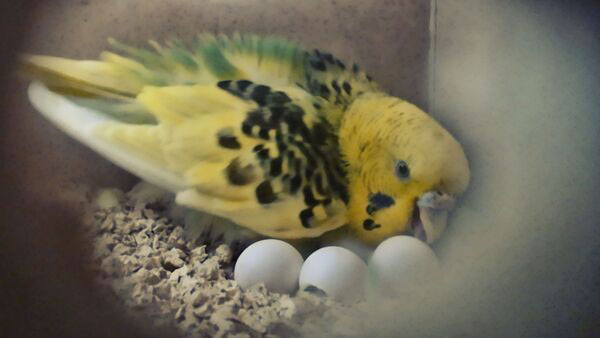
However, this depends on how happy and comfortable your budgie is. Some of the things you can do to make your female bird happy include providing:
- A healthy diet with fresh fruits and veggies
- Good-sized bird cage
- Fresh and clean sand daily
- Clean wooden nest boxes with high perches
- Heater and blankets in the winter
In other words, your domestic budgies can lay eggs all year round if you give them extra care. However, letting your baby bird lay eggs regularly is not advisable because this could lead to egg binding, a dangerous condition.
How Often Do Parakeets Lay Unfertilized Eggs?
In the wild, female adult budgies rarely lay unfertilized eggs since it is easier for them to get a mate. When it comes to captivity, your beautiful birds can lay unfertilized budgie eggs every two weeks without the presence of a male bird. However, this varies from one budgie to another based on factors such as:
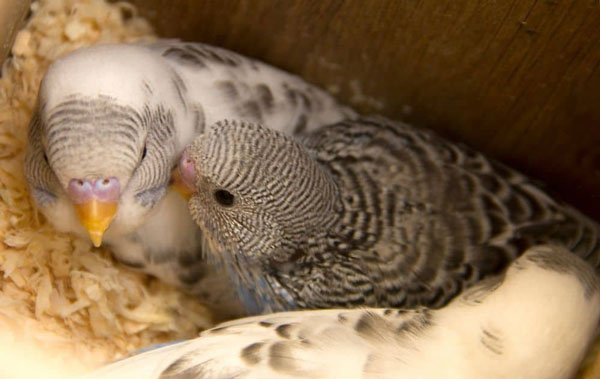
- Hormones triggered by external factors
- Temperature conditions
- Breeding time
- Availability of fertile male budgie
Also read: Is Your Budgie Regurgitating Or Vomiting?
At What Age Do Budgies Lay Eggs?
Budgies can start laying eggs or breeding as early as 5 or 6 months, although the ideal time should be at least 10 months. However, this may vary based on your bird’s breed. Hormones also play a significant role in determining when your baby parakeets begin to produce eggs.
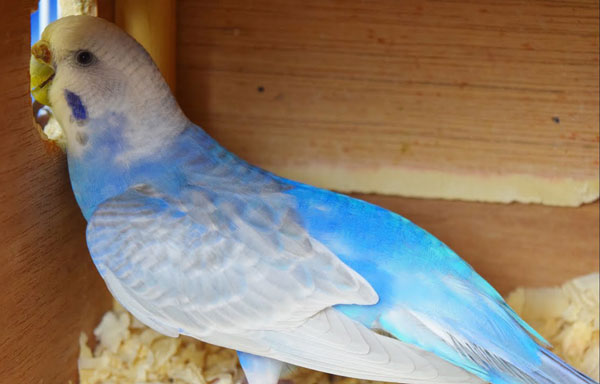
That said, when your pet parrots are between 7 and 12 months of age, this is the time they experience maximum egg production. Or simply between 34 and 54 weeks of age.
How Can You Tell Your Budgie Is About To Lay Eggs?
Since your captive budgie can lay eggs all year round, knowing when the laying is about to happen is essential. This way, you can set up the budgie cage for breeding early on, including adding a proper nesting box outside.
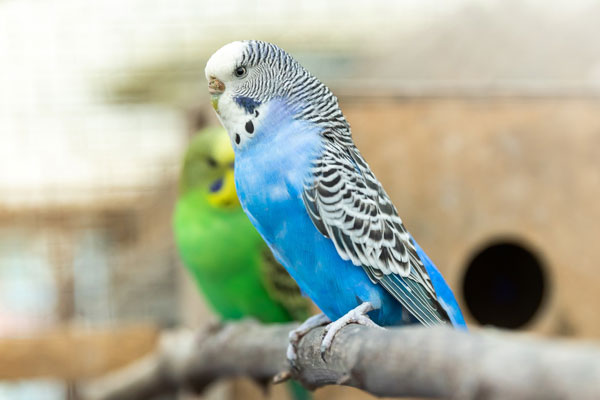
Unfortunately, it can be challenging for an average bird owner to tell when your female parakeet is about to lay eggs. Even so, some signs could indicate your female budgie is carrying eggs. These include:
- Reduction in pooping frequency
- Solid but soft bump around the bird’s vent area
- Increased size of droppings
- Spending more time around the nest
- Budgie is always acting defensively
How Many Eggs Can A Budgie Lay?
In captivity, female budgies can have up to 5 bird clutches in every breeding season. Now, each clutch may contain 4 to 8 eggs. So, in other words, your budgie can lay at least 4 eggs or more but one at a time until it achieves a full clutch.
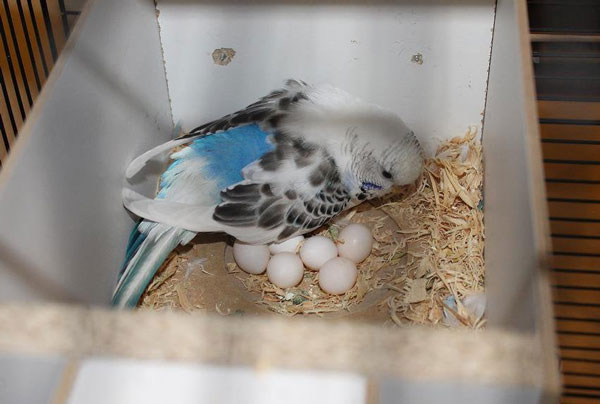
However, some breeding budgies may lay less than 4 or more than 8 eggs, which is also expected. Wild budgies, on the other hand, lay between 4-6 eggs per clutch, where the clutches range between 2 and 3 per breeding year. So overall, domesticated pet parrots usually lay more eggs than their wild counterparts.
FAQs
Interested in learning more about how often female parakeets lay eggs? Check out these commonly asked questions.
Yes. Female budgies can produce eggs in the absence of a male bird. This happens once the hormones responsible for your budgie’s reproductive cycle are triggered.
Nesting budgies can lay eggs anytime they are ready. However, it is sporadic for these types of birds to lay their eggs at night. Most of them lay early in the morning, during the day, or in the evenings.
Related: Overweight Budgie
Outro
Captive budgies lay eggs more often than wild birds. This is because, in captivity, the conditions are favorable. Nothing to worry about, though, because there are signs you can watch out for to know when your active birds are about to lay eggs. This is as long as your female parakeets are over 5 months of age.







